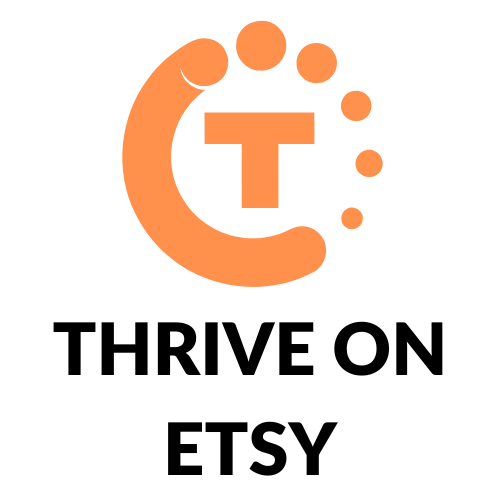Etsy is a popular online marketplace that allows individuals to sell handmade, vintage, and unique items. However, many people wonder why Etsy requires their Social Security Number (SSN) in order to sell on the platform. The answer is simple: it’s a legal requirement.
As an online marketplace, Etsy is required by law to report the earnings of its sellers to the Internal Revenue Service (IRS) if the seller’s sales reach a certain threshold. This threshold is currently set at $600 per year. In order to do this, Etsy needs the seller’s SSN or tax ID number. This information is used to generate a 1099-K form for the seller and report their earnings to the IRS.
Key Takeaways
- Providing your SSN to Etsy is a legal requirement for selling on the platform.
- Etsy needs your SSN to generate a 1099-K form and report your earnings to the IRS if your sales reach $600 per year.
- Providing your SSN to Etsy is necessary for seller protection and account verification purposes.
Legal Requirements
Why Etsy Needs Your SSN
Etsy requires your Social Security Number (SSN) for legal and taxation purposes. If you are a seller who reaches a certain number of sales and revenue each year, Etsy will send you a 1099-K. Since Etsy reports to the Internal Revenue Service (IRS), you’ll receive this document as proof of their report. The law for this year sets the reported threshold at $600. It’s the same for all online selling platforms. Therefore, Etsy needs your SSN to comply with the law and report your earnings to the IRS.
What Etsy Does with Your SSN
Etsy takes the protection of your SSN very seriously. They use your SSN only for legal and taxation purposes. Etsy does not share your SSN with anyone else, except as required by law. They store your SSN securely and use appropriate technical and organizational measures to protect it against unauthorized or unlawful processing and against accidental loss, destruction, or damage.
In addition to your SSN, Etsy also requires your bank account information for deposits in order to pay you. They use this information to deposit your earnings directly into your bank account. Etsy takes the protection of your bank account information very seriously as well. They use appropriate technical and organizational measures to protect it against unauthorized or unlawful processing and against accidental loss, destruction, or damage.
In summary, Etsy needs your SSN for legal and taxation purposes. They use it only for these purposes and store it securely. They also require your bank account information for deposits, which they also store securely.
Seller Protection
When you sell on Etsy, you want to be sure that your transactions are secure and that you are protected from fraudulent activity. Etsy offers a number of seller protection policies to ensure that your sales are safe and secure.
Preventing Fraudulent Activity
Etsy has a number of measures in place to prevent fraudulent activity from occurring on the platform. These include:
- Secure payments: Etsy uses secure payment processing to ensure that all transactions are safe and secure.
- Risk assessment: Etsy uses risk assessment tools to identify potentially fraudulent transactions and prevent them from occurring.
- Transaction monitoring: Etsy monitors all transactions for signs of fraud and takes action to prevent any fraudulent activity from occurring.
Tax Compliance
As a seller on Etsy, you are required to comply with tax laws and regulations. Etsy requires sellers to provide their Social Security Number (SSN) or Employer Identification Number (EIN) in order to comply with tax laws and regulations.
When you reach certain sales thresholds, Etsy is required to report your sales to the IRS. To be on Etsy’s radar as someone they need to report to the IRS, you need to sell: 200 sales, and $20,000 or more in revenue. If you’ve made one or the other, but not both, you’re fine. However, you will only receive a 1099-K when both apply.
By complying with tax laws and regulations, you can ensure that your transactions are secure and that you are protected from any legal issues that may arise.
Account Verification
When you sign up to sell on Etsy, you’ll be required to provide personal information such as your name, address, and Social Security number (SSN) or tax identification number (TIN). This information is necessary for Etsy to comply with tax laws and report your earnings to the IRS.
Ensuring Your Identity
Etsy verifies your identity by requiring you to provide your SSN or TIN. This is done to ensure that you are who you say you are and to prevent fraud. When you provide your SSN or TIN, Etsy will compare it to the name and address you provided during registration to make sure they match. If there is a discrepancy, Etsy may ask you to provide additional documentation to verify your identity.
Protecting Your Account
Etsy takes the security of your personal information seriously. They use industry-standard encryption to protect your data and have strict policies and procedures in place to prevent unauthorized access. Additionally, they require sellers to verify their bank account information to ensure that payments are sent to the correct account.
To verify your bank account, you’ll need to provide your bank account number and routing number. Etsy will then make a small deposit into your account, which you’ll need to verify by entering the exact amount on the Etsy website. This process ensures that the bank account you provided is valid and that payments are sent to the correct account.
By requiring sellers to provide personal information and verify their identity and bank account, Etsy is able to provide a secure and trustworthy marketplace for buyers and sellers alike.

